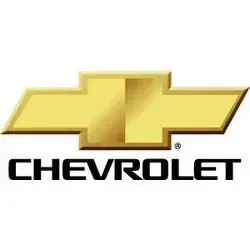Chevrolet Malibu Tire Pressure
Most common recommended tire pressure for Chevrolet Malibu can range from 33 psi to 35 psi depending on year of production, trim and OEM tire size, but it maybe different for older models. It is imperative to confirm the exact tire inflation for your Chevrolet Malibu to ensure safety on the road. Always refer to your vehicle owner's manual for the correct tire pressure designated by vehicle's manufacturer.
Select your Chevrolet Malibu production year to see its recommended tire inflation.
| Model Year | Front Tires | Rear Tires |
|---|---|---|
| 2025 Chevrolet Malibu | 33 - 35 psi | 33 - 35 psi |
| 2024 Chevrolet Malibu | 33 - 35 psi | 33 - 35 psi |
| 2023 Chevrolet Malibu | 33 - 35 psi | 33 - 35 psi |
| 2022 Chevrolet Malibu | 33 - 35 psi | 33 - 35 psi |
Recommended Tire Pressure for Chevrolet Malibu
Maintaining the recommended tire pressure for a Chevrolet Malibu is essential for several reasons that directly impact safety, fuel efficiency, and the overall lifespan of the tires and vehicle. Proper tire inflation ensures optimal contact between the tire and the road, enhancing the vehicle's handling and stability, particularly at higher speeds or when navigating corners. This not only improves the driving experience by offering a smoother ride but also significantly reduces the risk of accidents caused by tire failures such as blowouts or excessive tire wear. From an economic standpoint, tires inflated to the manufacturer's recommended pressure level exhibit less rolling resistance, which means the vehicle requires less energy (or fuel) to move forward, leading to noticeable savings on fuel consumption over time. Additionally, evenly inflated tires wear more uniformly, prolonging their usable life and delaying the need for costly replacements. For Chevrolet Malibu owners, adhering to the recommended tire pressure, which can be found on the placard attached to the driver's side door edge or in the owner's manual, is a simple yet impactful measure for enhancing vehicle performance, safety, and longevity, while contributing to environmental sustainability through reduced carbon emissions.

All listed guides, data and/or calculations are for informational purposes only. TirePressure.com does not warrant or make any representations regarding the accuracy of or the results of the use of this information. Always refer to vehicle owner's manual for the correct tire pressure configuration.